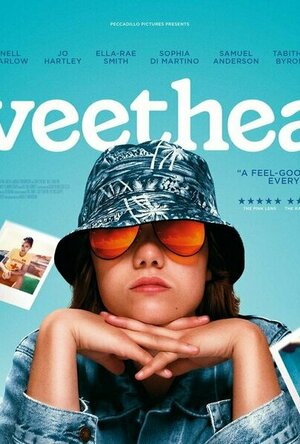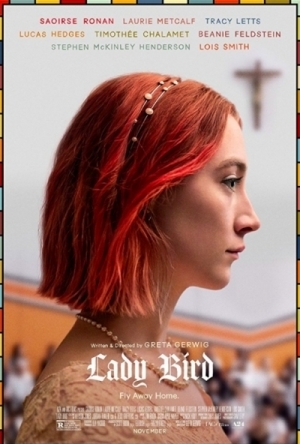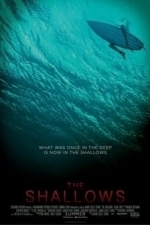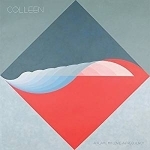
Scanner Radio - iPad Edition
News and Social Networking
App
★★★★ The best selling Scanner Radio for the iPhone comes to the iPad! ★★★★ Listen to...
Bob Mann (459 KP) rated Sweetheart (2021) in Movies
Sep 20, 2021
Positives:
- What a great ensemble cast! It's all headed up by Nell Barlow, amazingly in her feature debut. Nell manages to perfectly deliver the hair-pullingly frustrating unpredictability of a teenage girl: always planning to go off doing something worthy like "knitting jumpers for elephants in Indonesia". But she manages to keep the portrayal just the right side of parody, not straying into 'Kevin and Perry' territory. "What's wrong with you?" asks her mother. "I'm 17. Everything's wrong with me" she replies. It's an immaculate performance for someone so young.
- Jo Hartley is also fabulous as A. J.'s mum, a lost soul struggling with her own worries, without having those of AJ to add to them. It's not portrayed as a typical 'Mum v Teen' battle, but beautifully nuanced. "Just because you're a lesbian now, it doesn't mean you have to dress like a boy" she pleads with A. J.
- If you're trying to place her, Ella Rae-Smith was the striking girl in the baseball cap in Netflix's "The Stranger". She is also wonderful here, as the 'hot girl' who you think has it all but is underneath deeply troubled and conflicted. A sex scene (beautifully lit and filmed by Emily Almond Barr and Matthew Wicks) manages to show absolutely nothing but is deliciously erotic as a result.
- The writing by Marley Morrison feels very autobiographical. And, as I found through reading this Guardian article about Morrison's gender-journey, there is a lot of personal experience in here. It's clever that the film is claustrophobically set in the remote holiday park (actually the real Freshwater Beach Holiday Park near Bridport on the Dorset coast). If it had been set in a big city like London, AJ could have constantly fled from her feelings, never resolving them. Here, she is constantly running into Isla.... there is no escape.
- I also very much liked the relationship written between A. J. and Steve. Steve is almost the safety valve on the pressure cooker, always helpfully allowing some steam to escape. It adds warmth to the story.
- For such an indie picture, there's a range of great tunes on the soundtrack: mostly from bands I have never heard of (probably making it affordable). I'm not sure if there's to be a soundtrack album released, but it's worth a listen if so.
Negatives:
- I wasn't fond of the sound mix on the film. Some of the dialogue was indistinct.
- A. J. gives us an occasional running commentary of her thoughts as a voiceover. Regular readers of my blog will know my thoughts on this subject! I'm not sure if it added much to the story: a 'show-not-tell' approach would have been my preference.
Summary Thoughts on "Sweetheart": I likened this film to 1980's "Gregory's Girl", and that's a great compliment. That movie made stars out of John Gordon Sinclair and Clare Grogan. I'd predict similar great things for Nell Barlow, Ella Rae-Smith and particularly for writer/director Marley Morrison. I'll very much look forward to Marley's future projects.
It's a cracking little British film. It deserves a major cinema release, but I suspect this is one that you might need to hunt out at your less mainstream cinemas. But please do so - it's well worth it. Very much recommended.
(For the full graphical review and video, check out #onemannsmovies on the web, Facebook and Tiktok. Thanks.)
Bob Mann (459 KP) rated Lady Bird (2017) in Movies
Sep 29, 2021
“Lady Bird”, the directorial debut of Greta Gerwig, features one such teen who thinks she knows it all. Looking and acting for all the world like a 15 year old (something that Margot Robbie really can’t pull off in “I, Tonya”) Saoirse Ronan plays Christine McPherson who has the given name (“I gave the name to myself”) of ‘Lady Bird’. She is struggling with a lot of issues: an unreasonable and overbearing (parents: read ‘perfectly reasonably but firm’) mother (Laurie Metcalf, “Roseanne”); the issues of puberty and young love; the constrictions of a Catholic school she despises; and her inability to perform to the grades she needs to get into a college of her choice. That choice being on the East coast as far away from the backwater of Sacremento (“the mid-west of California” – LoL) as she can get.
Love comes in the form of two serial male fixations: the gorgeous and artistic Danny (Lucas Hedges, “Three Billboards Outside Ebbing, Missouri”, “Manchester By The Sea”) and the aloof and enigmatic Kyle (Timothée Chalamet, “Call Me By Your Name”).
This is a near perfect coming of age film. The plot, while fairly superficial and covering ground well-trodden before, fully engages you and makes the running time just fly by. And there is just so much talent on show. The script by Gerwig is chocker-block full of great and memorable lines; Ronan is pitch-perfect as the irascible and cock-sure teen; Tracy Letts (“The Post“) is magnificent in the less showy role as the “good cop” dad, struggling invisibly with his own demons; and Metcalf gives an Oscar-nominated performance that really should give Alison Janney a run for her money… a drive away from an airport conveys just perfectly every college-age parent’s emotional low-point.
Where perhaps the film overplays its hand a bit is in the “wrong side of the tracks” line. The household while struggling is by no means trailer-park poor (compare and contrast with “I, Tonya”): perhaps this is the depths of financial desperation found in Sacremento? But I doubt it… there still seems to be money available for fancy cowgirl outfits.
Which leads me to the rating, which seems to have been a common rant in the last few weeks. I would have thought that there was nothing like this film to turn the mirror of reasonableness on a young teen, perhaps helping them to treat their parents better, work harder for college or make better choices. Yet it has a UK 15 certificate. And for what? There is a full frontal male photo-spread in “Playgirl” (I want to say “it’s a penis, get over it”, but if forced I would have frankly just snipped the 50 milliseconds out to get the lower rating). And there are a few (only a few) F- and C- words. I have the same problem here as with “Phantom Thread” – here is a high-class film that a young teen audience would absolutely love to see. I think the BBFC have got it wrong again here.
I cannot recommend this film enough: a tale of teenage life love and resolution that is hard to beat. Possibly one of the best coming of age tales I’ve ever seen. On the basis that it looks like I will never get to see “Call Me By Your Name” – the only major one I’ve missed – before this Sunday’s Oscar ceremony, what a great way to round off my Oscar-viewing season.
Bob Mann (459 KP) rated The Shallows (2016) in Movies
Sep 29, 2021
Waxing lyrically. The shapely Blake Liveley.
Waxing lyrically. The shapely Blake Liveley.
Blake Lively (“The Age of Adeline“) plays surfer and trainee doctor Nancy, still grieving the recent death from cancer of her mother and travelling to a remote Mexican surf beach where she has photos of her mother surfing while pregnant with her. While surfing alone, Nancy is attacked a couple of hundred yards from the shore by a Great White and severely injured. She has the choice of refuge of either a low rock or another less palatable floating object. Choosing the rock (at low tide) she is faced with the dilemma of both surviving her injuries and then being rescued before the high tide takes the rock and leaves her to the mercy of the ever circling big-fish.
We're going to need a bigger rock.
We’re going to need a bigger rock.
A big summer blockbuster this is not, with a total cast of eleven (not including a guest appearance of Steven Seagull (as himself)). But the small cast doesn’t make it less gripping, and gripping it most certainly is, with tension building progressively (emphasised periodically by an on-screen clock) with the countdown to high tide.
Blake Lively is an underrated actress and really delivers the goods here. And bearing in mind the problems that Spielberg had with his mechanical shark Bruce (named after Spielberg’s lawyer) the appearance of the shark is limited to where actually needed, with Lively having to fill in the blanks with reaction shots. As your imagination is still far better than any special effects, this is hugely effective for certain sequences.
Pure horror: here Dad had gone down to the video rental and come back with 'Dirty Grandpa'.
Pure horror: her Dad had gone down to the video rental and come back with ‘Dirty Grandpa’.
The film draws similarities to another interesting entry in the “Jaws” genre – “Open Water 2: Adrift” from 2006. In that film there was the same incessant threat of shark attack combined with the audience frustration that safety (in that case, the deck of their yacht, if only they had let a ladder down) being so near. Here the 200 yards to the shore is shoutable to but still 190 yards too far.
The cinematography (by Flavio Martínez Labiano) is also just beautifully done with some stunning surf and underwater shots that not only highlight Ms Lively’s lithely (sic) figure and her Californian surfing skills, but also the beauty of the ‘Mexican coast’ (actually Lord Howe Island in New South Wales, Australia).
“The Shallows” was written by Anthony Jaswinski and directed by Jaume Collet-Serra (the director of “Non-Stop“, aka Taken 3.5). It comes with a truly impressive BvS quotient of just 5.9%!
So with all of this going for it, you would think that my rating is heading towards at least a 4.5. But all films like this require a satisfying denouement, and unfortunately this is where this one comes off the rails. It is just plain silly and, together with an unnecessary and irritating epilogue scene, diminishes what was on track to be one of the best films of the summer. So here’s the “One Mann’s Movies” solution:
Using Final Cut X, Adobe Premier or your favourite video editing suite, cut out the scene from 115:00 to 116:00 from “Jaws”;
Photoshop Blake Lively’s face onto Roy Scheider’s body.
Insert the finished clip into “The Shallows” at about 82 minutes in.
Enjoy a 5-Fad classic!
This limitation aside, it’s still worth your while hunting it out at a cinema near you, since the fantastic cinematography is best suited to a big screen.
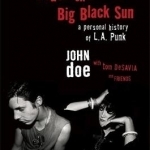
Under the Big Black Sun: A Personal History of L.A. Punk
John Doe and Tom DeSavia
Book
Under the Big Black Sun explores the nascent Los Angeles punk rock movement and its evolution to...
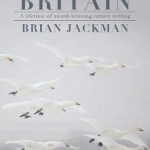
Wild About Britain: A Lifetime of Award-Winning Nature Writing
Book
A new collection of award-winning journalist and author Brian Jackman's nature and travel writings...
African American History
Book
A groundbreaking approach to primary source documents, with in-depth expert analysis of the court...
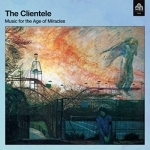
Music for the Age of Miracles by The Clientele
Album Watch
The Clientele return in September with Music for the Age of Miracles, their first release of new...
rock
